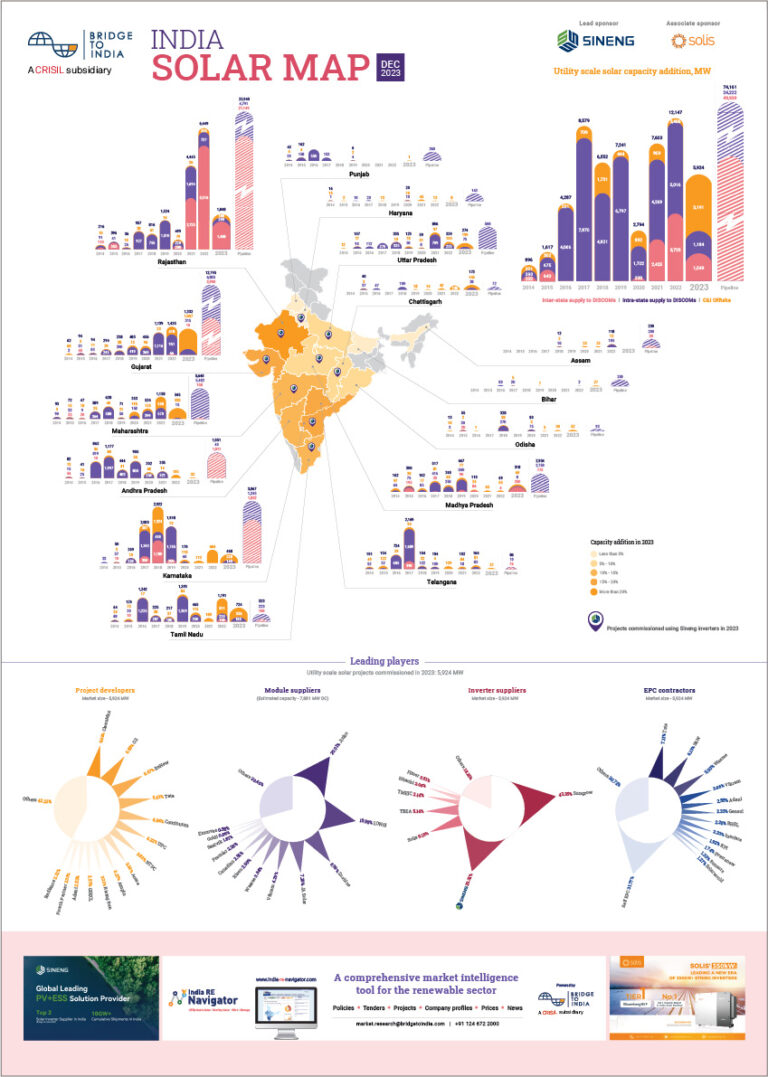“We are going to introduce electric vehicles in a very big way,” India’s Minister of Power, Piyush Goyal, stated last week. The Ministry of Heavy Industries and the NITI Aayog are working on a comprehensive policy for promotion of electric vehicles. This policy is expected to provide support for both domestic manufacturing and scaling consumer demand.
- India’s electric vehicles industry is nascent with just 0.1% global market share and almost no competitive advantage;
- Other countries, particularly China, are spending billions of dollars subsidizing local companies to push them at the forefront of storage and electric mobility technologies;
- Growth in electric vehicles can facilitate greatly in energy transition but the market poses formidable infrastructure and financing challenges for Indian policy makers;
India has made little progress in electric mobility since the announcement of the National Electric Mobility Mission Plan in 2013 aiming for over 6 million electric/hybrid vehicles by 2020. As per available government data, only 790 battery operated electric passenger cars were sold in India in 2015-16 (global market share of 0.1%). The National Electric Mobility Mission Plan provides financial incentives of up to INR 138,000 (USD 2,100) for electric and hybrid vehicles. But the budget of INR 1.75 billion (USD 27 million) for FY 2017-18 is too low considering that the ministry’s own estimate for the program is INR 140 billion (USD 2.2 billion) annually.
Many automotive groups including Mahindra, Toyota, Maruti Suzuki, BMW and Volvo already sell battery operated electric or hybrid models in India. Other suppliers are expected to join this market soon but these companies are looking to rely almost completely on imports for key components including batteries. So far, the only exception is a recent announcement from Suzuki Motor Corporation, Toshiba Corporation and Denso Corporation to manufacture lithium-ion battery packs in India.
In comparison, China is a world leader in electric vehicles with over 50% global annual market share. Local manufacturers such as BYD and BAIC are world leaders in this market. The country is considering ramping up progress even further and wants 8% of all vehicles to be electrically powered by next year. China is spending billions of dollars subsidizing local companies to push them at the forefront of electric mobility technologies. It accounted for half of the USD 16 billion in subsidies offered to new-energy car makers in the past decade.
Electric vehicles market is growing rapidly worldwide fueled by stricter environmental measures, technology improvements and cost reduction in energy storage. It is also seen as a vital link in achieving energy transition. That explains the lead taken by the power minister, Piyush Goyal, on the electric mobility initiative despite automobiles falling under the ambit of the Ministry of Heavy Industries. Growth in sales of electric vehicles will lead to more demand for (renewable) power, help in creating a flexible demand source to tackle intermittency issues of renewable power and reduce reliance on (mostly imported) oil.
The ambitions now need to be backed with actions. But while India has a large domestic market, it lacks the fiscal capability and ambition of China and the technology expertise of Japan or South Korea. There are also formidable infrastructure and financing challenges and addressing these will not be easy.












